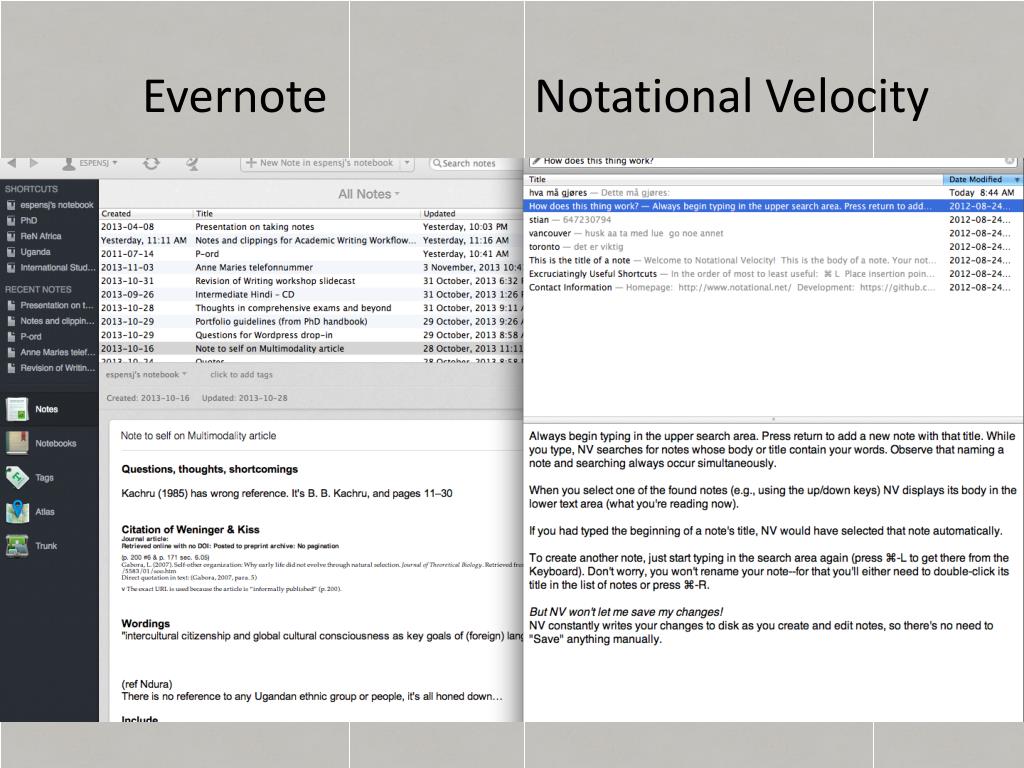


- #Windows alternative for notational velocity portable#
- #Windows alternative for notational velocity software#
#Windows alternative for notational velocity software#
It was nice to be able to have so much music and so much control, and countless hours could be spent customizing things and tweaking and making everything just so.Īs I started doing more office work, and getting software gigs, I found my passion for building playlists, hunting down more music, and doing backups to get less and less as my other mandatory keyboard time increased. I forget the names of both, but one was for renaming and handling meta information in bulk, and one was a volumizer. I also had a couple other programs, Windows things from when I had Windows on my machines.
#Windows alternative for notational velocity portable#
Around 2010-2012 there were a lot of random WMs coming out, but i3 seems to be the most popular for good reason.įor close to fifteen years I used first Winamp, then later Foobar2000 to manage playlists and put them on various portable devices. If I'm doing a live-coding session with tidalcycles, I'll use i3 because I can cut my distractions down and put my windows precisely where I want them with minimal effort. It's the current hype for the *nix ricing crowd, the kids who want to look like l33t hax0rs and such, but it's also just damn fine software. The i3 window manager: Back when I started learning Linux, I fell in love with wmii after about a year using DWM. Renoise is also important because if its modular interface, even if it isn't as obvious as Buzz or Radium's pseudo cable-routing systems. Seven years later, and it's my favorite DAW. After a year on OpenMPT and another on Buzz (RIP) and Aldrin (also RIP), I decided to shell out for Renoise. Renoise: For making music, the tracker interface always made more sense to me with its straightforward representation of all data values, and you can program your sequences with just a computer keyboard. Honorable mention to TidalCycles and FoxDot, two of the best environments for interacting with SC, but SC's JITlib is pretty powerful anyway, and what they're built around. SuperCollider: You can code synthesizers and make music, in a way that is in some ways a bit more intuitive than a DAW. As a predominantly Windows user, I hate Notepad, but use it because I'm rarely doing text editing. Vim: Once you learn the basics, it's almost impossible to use anything else. Firefox: It's a damn fine browser run by a damn fine team, and works well for like 98% of my browsing needs, and the other 2% are weird, inconsistent failures.


 0 kommentar(er)
0 kommentar(er)
